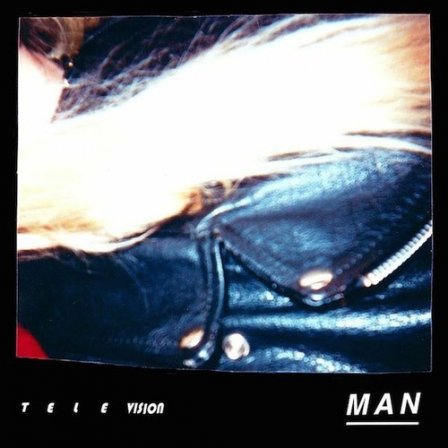The Northwest is a mess of perceived importance; everything is. Something happened once, and everything exists in its shadow. Naomi Punk is inevitably and regrettably wrapped up in this; when their debut The Feeling was reissued by Captured Tracks (the album started gaining critical traction by the label association), everyone and everywhere compared it to grunge. Naomi Punk is a Northwest band; they say they’re from Olympia, and I heard once that one of them lives in Seattle — it shouldn’t matter, but it seems like it does.
The things that seem to have the most weight are simply because they’re reminiscent of things that have had weight. All over, in punk, especially, we have this perpetual problem of believing that things that were revolutionary are still revolutionary: playing loud, fast, making zines, having the same circular conversations with the same people who have already had those same circular conversations, believing change within an insulated community — Olympia, for example, a hideout for weirdos and punx covered in grease and THC and angst — is change worldwide. This means bands that sound like other bands that were big bands are big bands, because bands that sound like this are big bands, right? Bands that release music on Perennial and play often at Old School Pizzeria or work there — Broken Water, Vexx (previously just Vex), Gag, Strange Wilds (previously Wet), Hysterics, Milk Music, Naomi Punk, et al. — are pigeonholed, maybe on purpose, as acts that draw from a small list of influences, most of them bands that existed in the same scene 10 to 20 years earlier.
About a year ago, I realized Naomi Punk was my favorite band in Olympia. The critical treatment of The Feeling seemed so misguided, despite that it came with a newsprint poster and a zine, that its cover-art was made with handmade collages, that it was home-recorded, that their press photo featured the band in parkas and raincoats looking utterly lethargic, like they were asking for it: to be stereotyped by their geography and aggression. Being their fan isn’t easy; their songs all kind of sound the same, follow the same rhythmic pattern, bury the vocals that sing mostly nonsense trickled with words that shine iridescently among the rest of the beige and lifeless muck and dirt. Coming to their defense against everyone who thinks they’re a “grunge” band isn’t easy — they have “punk” in their name, for Pete’s sake.
When I first saw them live, they seemed to so clearly have their intentions set on being a pop band. Travis Coster’s vocals are always sweet, hung around the guitars like tinsel — very thin. He doesn’t yell, and he writes good melodies. His songs are catchy the first time you hear them; by the second, they’re familiar and comfortable. They’re easy, and that they’re all kind of the same works for attracting someone who is new to their shtick; you can get them about 30 seconds into any of their songs without being too off the mark in any direction. Shit, maybe I’m wrong; maybe Naomi Punk is a grunge band after all — at least in the sense that their lyrics are as seemingly nonsensical as Kurt Cobain’s, as on “Song Factory”: “You came to me/ I chew my hair/ My head is on/ She heard my prayer.”
But after awhile, the monotony becomes wearing. Television Man is a disappointment in the sense that it’s a lot of the same, save for the two instrumental tracks, based on keyboards, that sound like attempts at making warped VHS soundtrack music. But even these tracks have the same rhythmic trappings and buried melody, like the band just couldn’t make it in that day so someone went solo and made do. This record, like The Feeling, was self-recorded, and they wouldn’t be easy to tell apart. There are some good songs: “Linoleum Tryst” is probably the best, but we heard it on a 7-inch between records. I also like “California Truth,” all one-minute, eight-seconds of it, bringing to mind the idiom “No good song is too long, no bad song is too short.” “Eleven Inches” is good, too; I remember them playing it live a few times, and it’s always striking, bringing their balance of two guitarists and no bassist to the fore, showing it off, making it actually work and sound thick — their limitations being exactly the thing that makes them memorable.
But I don’t think I want to like Naomi Punk. Everything can seem so backwards in the Northwest; people from all over migrating there for a music scene that’s at least one but probably two decades past and making all the same music anyway. Hardcore bands seem like the least controversial acts out there, in that delivering something radical in a package that you expect to be radical is the least radical thing you can do, and the Olympia scene is ripe with them, rotten, pleased with them. Naomi Punk doesn’t defy the expectations that you have of them, certainly not on Television Man. They sound like a band from the Northwest and look like a band from the Northwest. They are habitual in their tendencies, to their detriment. I still like them. They deliver exactly to par, full of malaise and lethargy. They are one more band that has condensed Michael Azerrad’s Our Band Could Be Your Life into a mission statement for a sound. They are one of the least important acts out there, full of nothing revolutionary and many things you’ve heard before — but it’s pretty good, nonetheless.
More about: Naomi Punk

